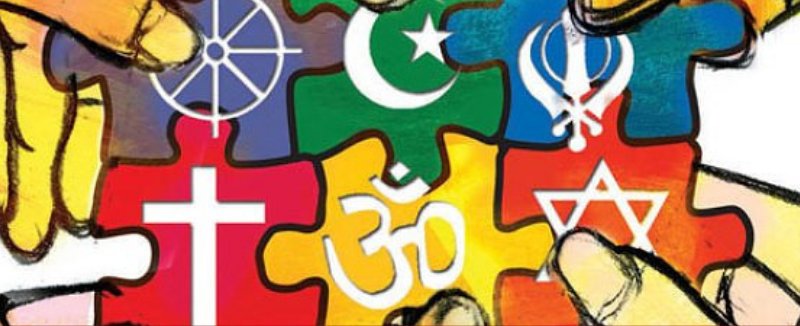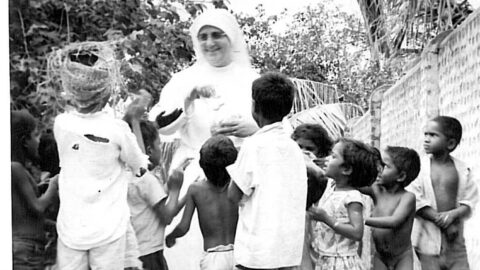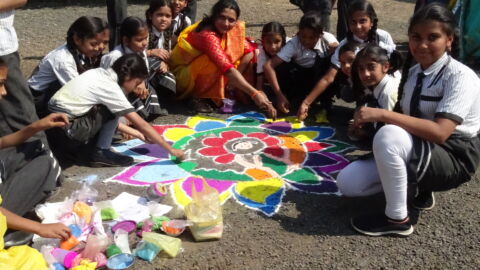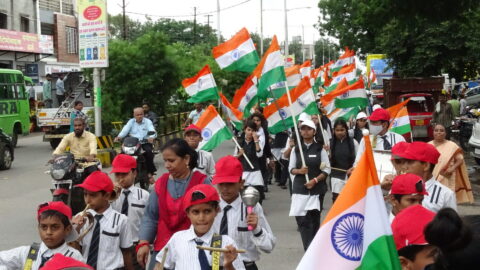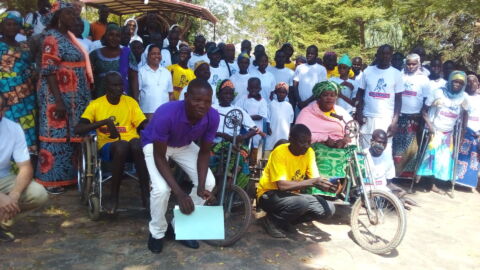Let us continue our reflection on Islam with the help of some important passages of our Constitutions. The articles that speak of these topics invite us to experience dialogue and hospitality with not only our Muslim brothers and sisters, but also in our communities and with the peoples and persons we meet in our missions and who follow other religions.
Our missionary life is driven by the desire to share the joy of meeting Christ and to be a presence of communion with others. The icon that inspires us is the meeting between Mary and her cousin Elizabeth, a visitation that ignited the joy of the two women, one young and the other elderly, and revealed the extraordinary life that they both carried in their womb. Going towards others motivates us to reach distant peoples, in terms of culture, mentality, religion, as well as geographical distance. For this reason, we desire to adapt to the various situations that being in a country different from ours entails. We carry in our hearts the enthusiasm of being able to get to know cultures and peoples; we feel the urge to let ourselves be inhabited daily by others in an encounter that transforms, in the welcoming of diversity, in dialogue and in hospitality. In countries where other religions are in the majority compared to Christianity, welcoming this diversity becomes a way of evangelizing others, and ourselves in interreligious dialogue.
An entire article of our Constitutions is dedicated to this: “We engage ourselves in interreligious dialogue, which is an essential element of the evangelizing mission of the Church. She is called to bear witness to Christ in the vast cultural and religious worlds, by entering into a dialogue of salvation with all”. (C21).
The article continues by indicating two modes of dialogue: the “dialogue of life” with which “we try to work together starting from the values we share, in a process of mutual purification and enrichment”. In fact, in dialogue with people, we get to know life stories, examples of humanity, of perseverance and courage, of suffering and joy and we allow our humble attempt to “become all things to all, being close to the daily life of people and communities, in the missionary joy of sharing the life of the Gospel”. (C 26), and as a small seed that can grow in others. This is a great wealth!
Then there is the dialogue “of religious experiences and theological reflections”, in fact: “We are convinced that, overcoming the prejudices and fundamentalisms of each party, the clarity of one’s identity and the openness of mind and heart make dialogue a fraternal journey towards the truth to which the Spirit guides us” (C 21).
In the meetings with our Muslim sisters and brothers we experienced how many times this fraternal journey can be achieved. The faith of the other speaks through him in the simplicity of an encounter, in the solicitude of solidarity, in mutual esteem allowing us to deepen his and our faith through the answer to new questions, the curiosity to understand, to discover and know a faith and different traditions. Each one finds oneself disarmed before the depth of the other and the call of the divine reality that each one carries within oneself.
The exchange of life experiences and the sharing of faith can create a profound and humble reciprocity. We let the other person decide how to dialogue, what to tell about himself, to lead us into their reality and weave trusting bonds of friendship. At the same time, the exercise of this dialogue asks us to let ourselves be inhabited by the other in an active way, creating a space for him, in our home, in our life and in our heart. Dialogue would not exist if it did not involve hosting the other in a listening space to welcome what he says and is. Moreover, if in hosting the gesture and the words did not trigger a dialogue, but were limited only to being the fulfilment of moral duties, there would be no hospitality.
Making “our existence a hospitable home”, where the fire always remains lit to indicate a Presence. A place always ready for the visit of those who request our closeness, the concern for others is tender like that of a sister and of a mother who knows how to look after and raise even the most ungrateful child, who knows how to be loyal. This is the face of hospitality that we want to embody and that we express with the vow of chastity. “Rooted in God, we give ourselves to bring forth life, take care of it and make it grow. As Sisters and Mothers, we make our existence a friendly home that welcomes every kind of poverty and loneliness”. (C 52).
Even the vow of poverty suggests this way of living: “free from anxiety and excessive worry, together we are ready for sharing, solidarity and hospitality, responding to the urgencies of those in need, not worried about accumulating for tomorrow” (C 61). The believers of Islam that we meet help and encourage us in living this aspect by seeing almsgiving as one of the pillars of their faith. Sharing meals with the poorest in the month of fasting, Ramadan, the meat of the animal sacrificed on the day of celebration with those who have no opportunities, concrete hospitality for the stranger, the traveller, the pilgrim… are all expressions from which we can learn, through which we can deepen the meaning of what we too live and do with people. A glass of cool water in the summer heat, a cup of tea, a few peanuts, express the disposition of the heart, the possible dialogue, the welcome, the desire to be together and share. How many times have we been invited into homes to participate in moments of joy and celebration, or have we witnessed the deaths and suffering of families and individuals!
Following the example of Jesus, every Missionary Sister of the Immaculate is called, to be a mirror of humble hospitality lived towards others and deep within herself, in the world and in the community.
We realize that: “We are not immune from the tension of the world, between longing for unity and selfishness which results in loneliness and violence. Nevertheless, we are called to be a prophetic sign of a fraternity that is always possible.
We cooperate in the growth of the spirituality of communion in the world, which is already the presence of the Kingdom by committing ourselves to dialogue in charity and open paths of reconciliation.” (C75).
The awareness that this tension inhabits every human being, allows us not to experience hospitality and dialogue in a superficial way. By showing us the natural limits that these can entail, helps us not to invade and colonize others and shows us the need not to hide the difficulties of the meeting born from different stories and points of view. We are not disillusioned, only the grace of the Spirit can help us make differences, even religious ones, the opportunity for a journey into truth.
In this, we are helped by the internationality of our communities, which is a continuous formative ground to broaden the heart by opening its doors to novelty, to diversity, to the acceptance of different ways of expression and dialogue. What is striking is the realization that sometimes we receive from others exactly what we aspire and this is the first grace of the Spirit who blows where he wants and makes his voice heard… even where you would not think you would hear it. For this reason, we try to live an open fraternity, to let this breath enter the life of each one. A fraternity that aspires to be a place of cordial welcome where each one is committed to ensuring that those who come feel at ease, find listening, experience the joy of meeting and where, respecting local customs and the needs of the community, hospitality is offered wholeheartedly (cf. C 79).
Sr. Marta Arosio, Direzione Generale
 Sr. Marta is a Missionary Sister of the Immaculate since 2010; in 2014 she reaches North Africa where she stays for four years. Called back to Italy, she deepened the study of the Arabic language and Islamic studies at the PISAI (Pontifical for Arab and Islamic Studies) in Rome where she obtained her licentiate in 2021.
Sr. Marta is a Missionary Sister of the Immaculate since 2010; in 2014 she reaches North Africa where she stays for four years. Called back to Italy, she deepened the study of the Arabic language and Islamic studies at the PISAI (Pontifical for Arab and Islamic Studies) in Rome where she obtained her licentiate in 2021.

